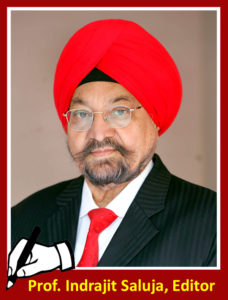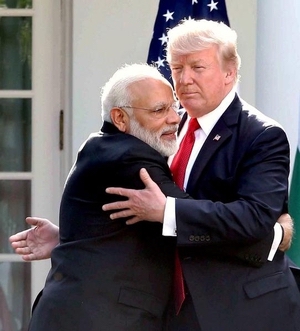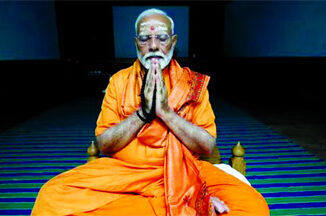 India, a diverse and culturally rich nation, is currently in the midst of general elections spanning seven phases. With two phases already completed and five remaining, the eyes of the world are turned toward this major democratic event, watching closely the political circus that unfolds. Political parties are competing for power, making lofty promises and giving guarantees of a paradise they would deliver, often focusing on providing freebies and doles to attract voters.
India, a diverse and culturally rich nation, is currently in the midst of general elections spanning seven phases. With two phases already completed and five remaining, the eyes of the world are turned toward this major democratic event, watching closely the political circus that unfolds. Political parties are competing for power, making lofty promises and giving guarantees of a paradise they would deliver, often focusing on providing freebies and doles to attract voters.
Political parties have been known to make grand promises during elections. They offer guarantees for free housing, free education, free healthcare, and other social welfare measures, seeking to win the hearts and minds of voters. While these promises sound appealing on the surface, their feasibility and long-term impact on the economy and society remain questionable.
One of the significant concerns during these elections is the use of communal politics and divisive rhetoric by some parties, particularly the ruling Bharatiya Janata Party (BJP). The BJP, led by Prime Minister Narendra Modi, has been accused of promoting a Hindutva agenda, which emphasizes the notion of India as a nation for Hindus. This stance has led to increased polarization and division among different religious and cultural communities in the country.
Prime Minister Narendra Modi’s leadership has been characterized by his strong oratory skills and persuasive communication. His ability to connect with the masses through speeches and media campaigns has played a key role in his political success. However, critics argue that his promises often lack substance and are primarily aimed at gaining electoral support.
Prime Minister Modi made several major promises during his previous tenures, some of which have not been fully realized. For instance, he pledged to bring back black money stashed abroad and distribute ₹1.5 million to each person in the country. This promise has not materialized, leaving many people feeling cheated.
Another significant promise was to provide every family with a pucca house (a permanent, well-constructed home) with all facilities by 2022. However, progress on this front has been slow, and many families continue to live in substandard housing conditions, and many have no shelter.
The Modi government has often boasted about India’s growing economic strength, claiming that the country will be the third-largest economy in the world by 2050. Despite these grand claims, the reality on the ground presents a different picture. India still faces significant economic disparities, with poverty affecting a large portion of the population.
The government provides 5 kg of food grains per month to 850 million people out of a total population of 1.3 billion to ensure basic survival. This indicates the depth of poverty and the need for more comprehensive economic reforms and social welfare programs.
While the BJP has been criticized for its communal approach, it is essential to note that other political parties are not entirely free from communalism either. Many parties have engaged in similar divisive tactics to appeal to specific vote banks, further exacerbating societal divisions.
The future of India hinges on its ability to address these challenges and move towards a more inclusive, equitable, and harmonious society. The country must focus on uniting its diverse population rather than promoting narrow, divisive agendas. Political parties should prioritize meaningful policies that genuinely uplift the lives of the people and foster national unity.
The general elections in India are a critical moment for the country’s democracy. While political parties compete fiercely for power, they must remember their responsibility to uphold the principles of democracy, fairness, and unity. The electorate, too, should remain vigilant and discerning, looking beyond empty promises and guarantees to support leaders who will genuinely work towards a better future for all.





Be the first to comment